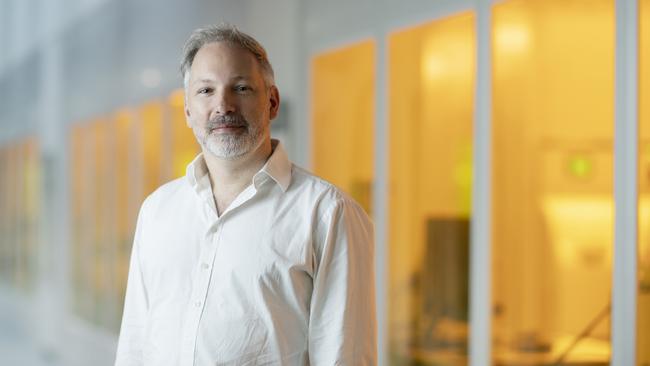Investing $1bn in PsiQuantum ensures Australia has a key role in quantum

Many are asking if this is what government should be doing. Shouldn’t we just leave this all to the private sector? Are we putting all our eggs in one basket?
Australia really has a choice at this juncture. Will we be part of the emerging global quantum industry or will we simply be consumers of quantum technology, buying cloud services from the big tech companies overseas? Events are moving too quickly to wait for the invisible hand of the market.
While a combined near-billion-dollar investment into PsiQuantum’s computing manufacturing facility sounds a lot, if Australia is to be a real contender in this space this is the type of money that’s required.
In 2018 the US established the $US1.2bn National Quantum Initiative Act and it continues to invest billions more; Britain is investing £2.5bn ($4.7bn) this decade. McKinsey has estimated that China is investing $US15bn ($22.5bn) in quantum across the next five years.
Over 25 years, Australia has built up a world-beating research strength in quantum technology, but if we don’t make significant investments across a range of quantum initiatives to turn this research into tomorrow’s products, we will be left behind.
Of course, PsiQuantum is only part of a broader story. It has been a year since the Australian government released a National Quantum Strategy. Buried among the varied imperatives about growing the nation’s quantum workforce and translating quantum tech out of the laboratory and into industry, there was a truly audacious claim: that Australia could build the world’s first error-corrected quantum computer.
Quantum computers are the technology of tomorrow. By exploiting the strange nature of matter at the smallest scales, quantum machines offer pathways to develop new materials, design new chemistry and pharmaceuticals, and up-end cryptography. The limits of its promise are unknown.
What is known is that building an error-corrected quantum computer that’s large and complex enough to tackle these difficult problems is a scientific and engineering challenge up there with a mission to Mars.
Fast forward a year, and we have seen the Australian government take steps on delivering on its quantum strategy. And – wow.
For a research and innovation community that is used to empty promises, audacious is suddenly an understatement. First up, the government has awarded $18.4m to the University of Sydney to establish Quantum Australia to support the growth of a domestic quantum industry. Australia has a lively tech sector with world-leading quantum companies, including homegrown start-ups. And the big tech multinationals such as Microsoft, Google and IBM have research and development programs and partnerships with our leading universities.
Quantum Australia brings together this entire national quantum ecosystem to grow Australia’s quantum industry, embedding quantum technology in our hospitals, our banks, and our farms. It will raise awareness of quantum technology, foster collaboration between industry and universities, encourage the creation and growth of quantum start-ups, and connect quantum companies on a national and international scale.
Further behind the scenes, significant legislative changes have been passed, in Australia and with our US and British allies, to facilitate sharing of quantum technologies, recognised as a dual-use technology in the AUKUS agreement. These changes are essential to open up these international markets for Australian quantum companies. Our nation’s research leadership in quantum computing has meant many of our top scientists are the logical “partners of choice” for major international quantum computing programs, especially with the US.
As a recent example, Sydney University is leading a $10m research program to advance quantum error correction, in partnership with IBM, supported by the US Intelligence Advanced Research Projects Activity. To translate these research ideas into future industries, we need to bring down barriers and share these advanced technologies with our most trusted allies.
Then we come to the bombshell: nearly $1bn for PsiQuantum to manufacture error-corrected quantum computers in Brisbane.
While many commentators in Australia have been wringing their hands about the impact on our local quantum companies, this announcement has travelled like a shockwave around the world. Quantum industry leaders are amazed by Australia’s audacity. The signal to investors will most certainly lead to more commitments of this type and scale, provided the Australian government doubles down on its support across a range of our most promising quantum tech.
As a quantum theorist, I’m not invested in whether photonic qubits or spin qubits or superconducting qubits are the technology that delivers a quantum computer. At this stage, for all we know, different qubit technologies could work for different problems.
What we do know is that even if PsiQuantum isn’t the first to develop fault-tolerant quantum computing – and there are no guarantees it will be – the investment in quantum infrastructure is one way to ensure Australia remains a player on the global stage.
Stephen Bartlett is director of the University of Sydney Nano Institute and foundation director of Quantum Australia.



This month the federal government opened its wallet to invest heavily in the future of quantum computing. This investment was confirmed in the budget last week.